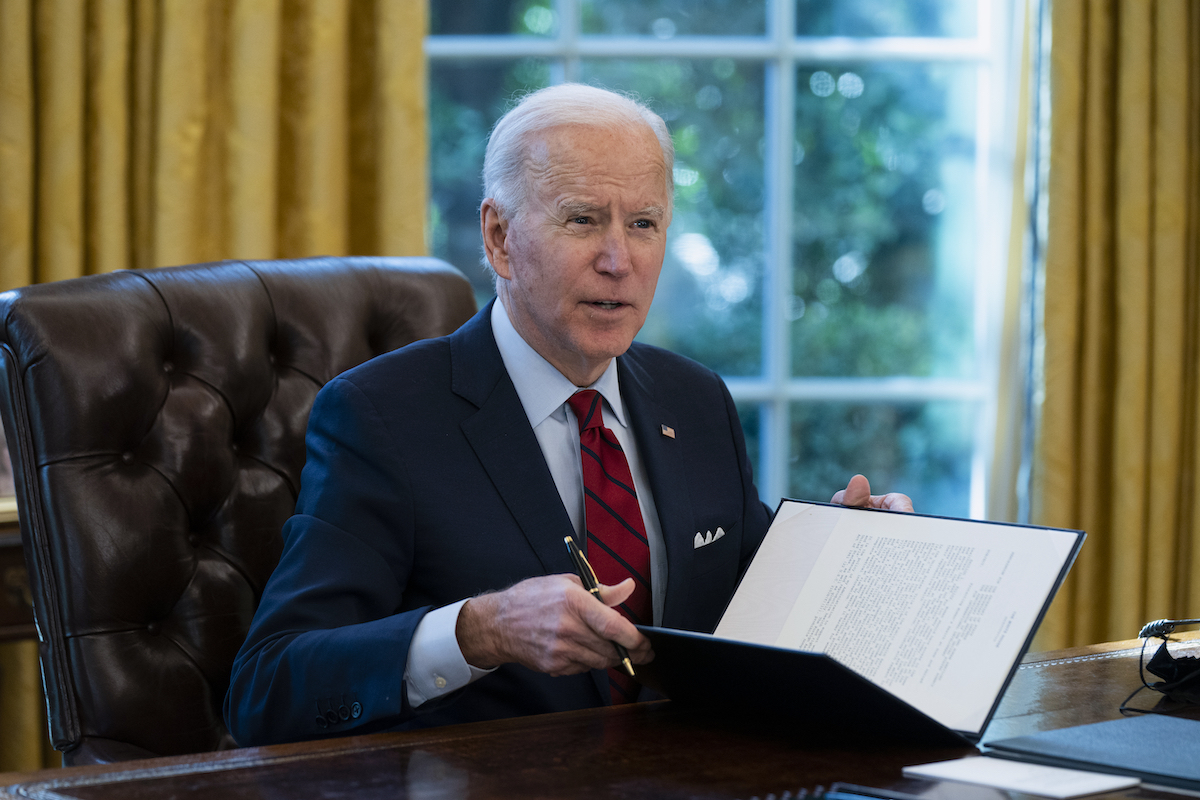With any new presidential administration comes new policies. That’s part of the electoral calculus made by the American people every four years. Different presidents have different priorities. No one expects otherwise.
That said, it’s reasonable to anticipate certain consistencies. National security policy focuses on protecting America from foreign threats; its first priority is not gender equality. Similarly the Department of Energy’s main goal is to ensure that America has sufficient energy supplies; it’s not responsible for developing educational curricula.
In other words, there’s a natural division of labor that, notwithstanding potential overlaps, helps government officials concentrate on their specific responsibilities and establish who is accountable for what.
Which brings me to the Biden administration’s economic policies. If the composition and rhetoric of President Biden’s economic team is anything to go by, Bidenomics aspires to be focused as much upon addressing questions like racial disparities and climate change as on topics like growth, taxes, deficits, poverty, employment, etc., which traditionally fall under the economic policy umbrella.
Some progressive thinkers have even specified that they want the new administration’s economic policies to be filtered through what they call “an intersectional gender lens.” Broadly speaking, this means factoring in gender, race and ethnicity when designing economic policies, regardless of whether the topic is wages or infrastructure.
How much of the Biden administration’s economic rhetoric will amount to virtue-signaling to progressives as opposed to reflecting fundamental shifts in the framing of economic policy is yet to be seen. But there are two problems with taking economic policy in intersectional directions.
One is that it opens an already-wide door to trying to promote particular groups’ economic well-being through targeted, top-down government interventions. Historically speaking, it’s at best unclear whether such approaches have produced the anticipated results. There’s also evidence to suggest that such interventions have adverse unintended consequences.
Consider, for example, Lyndon Johnson’s Great Society programs. In Johnson’s own words, the goal was to use the federal government to “cure poverty,” especially among racial minorities. But as authors such as Amity Shlaes have argued, these interventions invariably had negative effects upon the very populations they were designed to help.
Among other things, they created disincentives to work and undermined long-established civil society networks which were quite effective at addressing some of poverty’s deeper causes (family dysfunctionality, substance addiction, etc.). Moreover, by the 1970s, the large bureaucracies created to implement these programs weren’t even hiding the fact that their priority had become self-preservation rather than the welfare of the groups they were ostensibly serving.
A second problem is mission drift. Economic policy has implications for vast spheres of human endeavor, ranging from defense to education. But there are some fundamentals that should remain top priorities for anyone engaged in designing and implementing any administration’s economic program.
One such priority is sustained wealth-creation. Without wealth-creation, it becomes difficult to enhance the economy’s ability to meet people’s economic wants and needs over the long term, let alone sustain employment.
Indeed, we can’t even begin to have serious discussions about distribution issues, unemployment and poverty unless we have ongoing economic growth. More equal distributions of a shrinking economic pie result over time, in diminishing returns for everyone — including, eventually, those on society’s margins.
More generally, it’s every economic policymaker’s responsibility to bring economic insights and issues to the forefront of policy discussions, not least because there are plenty of other government officials whose (often very expensive) priorities lie elsewhere.
The Environmental Protection Agency’s entire raison d’etre, for instance, is safeguarding the environment. Surely, however, there should be someone sitting on one of the Oval Office’s couches during a climate change discussion who’s courageous enough to highlight the significant economic costs associated with trying to achieve zero-emissions.
The Treasury secretary’s job is not to largely echo whatever her EPA colleague says. Instead, economic policy officials should be asking all those hard questions that people pursuing the realization of what the economist Thomas Sowell famously called “cosmic justice” (i.e., heaven on earth) don’t like answering. In fact, it’s precisely by pointing to realities like trade-offs, or reminding people that endlessly expanding deficits are unsustainable, or highlighting how excessive regulation incentivizes cronyism that economic policymakers make distinct contributions to political debates unlikely to be made by anyone else.
A society’s well-being obviously isn’t reducible to economics. Questions of freedom and justice go far beyond supply and demand. Nonetheless, economic policymakers should resist being reduced to handmaids to everyone else’s political agendas. Ironically, it’s through sticking to their lane that they are most likely to promote the common good.
This article originally appeared in The Detroit News on Jan. 31, 2021

